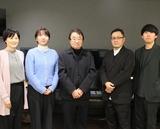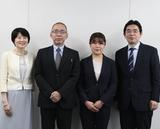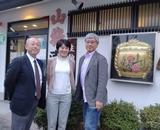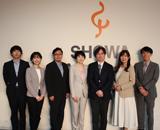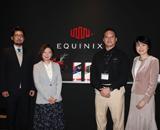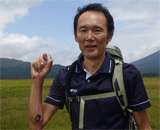February 2013
Conversation with a Professional Translator of Business Books
Ms. Aruga's DNA Runs through Arc's Translation Services
Ohsato: When we asked the editors of the "Diamond Harvard Business Review" about your work, they said, "In a nutshell, she writes extremely good Japanese." When we dug deeper into this, we came up with three reasons for this comment: your rich vocabulary, scholarly knowledge and ability to envision a translation project as a whole. In other words, it means you have the ability to continually "choose" the most appropriate words".
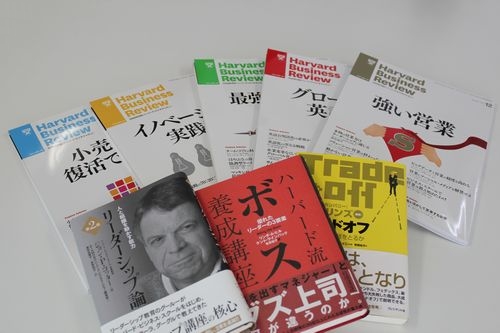
Aruga: If all that was required was to use the same word or phrase in every translation, then you might as well use translation software. Humans are used because, unlike machines, we can make the effort to provide the crucial ability to choose the most fitting word. For example, in the case of English to Japanese translators, part of this effort is to consult more than just an English-Japanese or Japanese dictionary. A thesaurus or English dictionary can also be very beneficial. In particular, because an English dictionary defines the meaning of a word in the source text through contextual examples, it often instantaneously resolves a question that I may have had regarding the meaning, and the equivalent word in the target language will spring to mind. On the other hand, although bilingual dictionaries are very useful for quickly grasping the approximate meaning of a word, they are not intended to help you pick up subtle nuances or make distinctions between synonyms.
Ohsato: How did you acquire such a vast vocabulary?
Aruga: Well, ever since I was a child, I've had a habit of reading the books and manga that I liked over and over again. If I found a word or expression particularly memorable, I used to underline them so as not to forget them. I ended up memorizing a lot of dialogue from girls manga stories! (Laughs) For a primary school student, the world is teeming with new words and I really did enjoy these discoveries. To this day, if I come upon words or sentences that I think are beautiful, I write them down, even song lyrics. But here, I might be dipping into the world of hobbies rather than wordings useful for work! (smiles wryly)
Ohsato: A word of advice for aspiring translators?
Aruga: Let me see... It is said that "The style is man himself" [George-Louis Leclerc de Buffon]. I think that in translations, the most important thing is whether a translation has been carried out wholeheartedly and with care. I believe the reader can sense the difference.
Ohsato: In other words, translation isn't only about English proficiency or specialized knowledge?
Aruga: Exactly. There are people who already have experience as translators, others with specialized knowledge and even yet others who work at foreign-affiliates and use English on a daily basis. However, I believe that such experience and knowledge come alive for translators only if an effort is made to write carefully and with readers in mind. Of course, English and Japanese skills are important, but, in my opinion, one's awareness and the way one approaches translation are also extremely important factors.
Ohsato: When we launched Arc's translation and localization services, you taught us a lot about handling quality control for particularly large projects. You advised us to supervise translation glossaries and provide sample translations, follow-up with feedback after translations are completed, make translators responsible for the quality of their work and so on. Your help was really valuable and had a great impact on the development of our quality control system.
Aruga: At that time I had little experience in the industry, but that allowed me to speak my opinions freely and make suggestions to you without being trapped into the methods that are used by the industry. In a way, I think that my lack of experience at the time proved to be beneficial.
Ohsato: As part of our quality control, we also turned to you to serve at times as an actual "checker" to proof-read other translators' works. It is no exaggeration to say that the know-how you brought to the company is one of the founding pillars of the high quality Arc provides today. I link to think of that Ms. Aruga's DNA runs in the company.
Aruga: Besides clients, feedback from Arc staff and translators are also very important.
Ohsato: The word "client" always comes up when we talk. Since Arc's work consists of translating documents sent to us by companies, there is a need for us to respond soundly to client needs ? the very thing you continually keep in mind. We'll continue to place emphasis on this as the starting point of our work. Thank you very much for your time today.
Feature Interview Index

